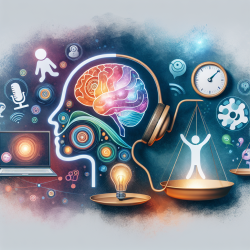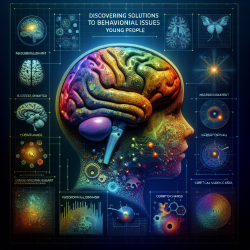The Internet has become a vital resource for many aspects of our lives, including mental health. A recent study titled Mental health related Internet use among psychiatric patients: a cross-sectional analysis sheds light on how psychiatric patients use the Internet for mental health purposes. This research provides valuable insights that can help practitioners enhance their skills and encourage further research in this area.
The study surveyed 337 psychiatric patients and found that 79.5% were Internet users. Interestingly, 70.9% of these patients used the Internet for mental health-related reasons. This high percentage underscores the importance of the Internet as a tool for mental health support and information.
Key Findings and Their Implications
Here are some key findings from the study and how they can be applied in practice:
- Information Seeking: The majority of patients used the Internet to seek information about mental disorders (57.8%) and medications (43.7%). This highlights the need for accurate and accessible online resources. Practitioners can guide patients to reliable websites and provide supplementary materials to enhance their understanding.
- Search for Services: About 38.8% of patients searched for mental health services online. This indicates a demand for online directories and platforms that connect patients with professionals. Practitioners can leverage these platforms to reach a broader audience and provide telehealth services.
- Social Media Use: Social media usage was less frequent, with only 47.8% using social networks and even fewer using forums, chats, or blogs. However, those who used social media did so extensively. Practitioners can consider creating or participating in online communities to provide support and share information.
- Peer Support and Professional Interaction: A significant portion of patients used the Internet to exchange experiences with other patients (19.8%) and interact with mental health professionals (17.2%). This underscores the value of online support groups and telehealth consultations.
Encouraging Further Research
The study also revealed that the Internet's role in mental health care is perceived differently among patients. While 36.2% believe that the Internet has helped them cope with their mental disorder, 38.4% do not share this view. This ambivalence suggests the need for further research to understand the factors influencing these perceptions and to develop more effective online interventions.
Practitioners are encouraged to stay updated with the latest research and consider participating in studies that explore innovative online therapy methods. Continuous learning and adaptation will ensure that mental health services remain relevant and effective in the digital age.
To read the original research paper, please follow this link: Mental health related Internet use among psychiatric patients: a cross-sectional analysis.










